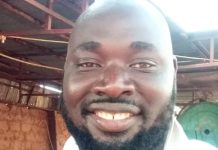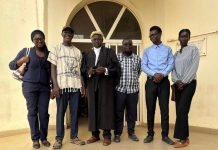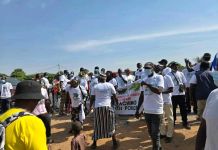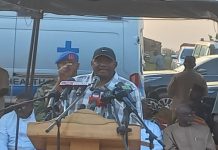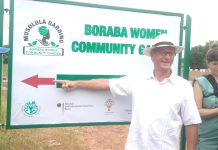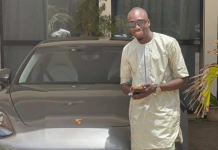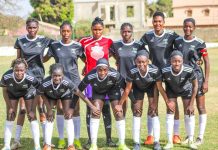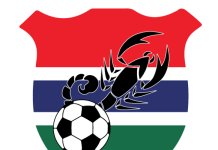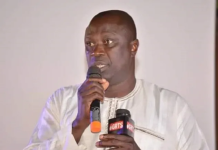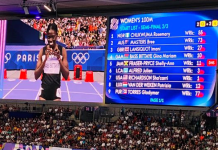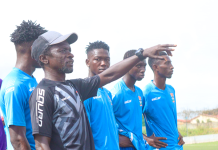By Yankuba Jallow and Saikou Suwareh Jabai
Mr. Musa Bah (The Scribbler) of Nusrat Senior Secondary School delivering on the topic Democracy and National Development said our leaders are not kings and queens but are entrusted to serve us. He made this remark on Friday, February 17, at a symposium organised by the University of The Gambia under the leadership of Dr. Ismaila Ceesay of the School of Arts and Sciences at the Gambia College Auditorium. This year’s theme was ‘Democracy and National Development’ looking into the ‘Prospects and Challenges’
Development said our leaders are not kings and queens but are entrusted to serve us. He made this remark on Friday, February 17, at a symposium organised by the University of The Gambia under the leadership of Dr. Ismaila Ceesay of the School of Arts and Sciences at the Gambia College Auditorium. This year’s theme was ‘Democracy and National Development’ looking into the ‘Prospects and Challenges’
Mr. Musa Bah (The Scribbler) started by citing a scenario he witnessed in Senegal where garden women joined him in the same car and he heard them say that if their Mayor did not do what they expect from him, then they will vote him out as they were the ones who voted him into office which is a counter to The Gambia. He added that for democracy to prevail in The Gambia the people must know that power resides in them and that power can be exercised by voting for anyone who comes before them in an election. He indicated that in a democracy thought is a guide to action. He called for the educational system to be restructured to give students a sound mind to innovate, citing Ghana as an example where University students invented a machine to bake bread which is used by most of the people of the country. He called for awareness raising for the citizens to become informed citizens.
“Democracy and development go beyond the polls and everyone should take part in politics as it a science of state development,” Bah asserted. He said Gambians should consider themselves as brothers and sisters and leaders should be aware that they are not kings and queens but servants of the people.
In his final remarks he said transparency in leadership is a good form of leadership that promotes democracy and good governance. Finally, he said amongst the functions of the government is to guarantee the protection of the fundamental rights even for convicted prisoners regardless of political affiliation or religious background.
The topic Participatory Citizenship which entails the role of the civil society was discussed by Miss N. Camara, a Lecturer at the University of The Gambia, who said good citizens can be categorized into three namely Personal Responsible Citizen, the Participatory Citizen and the Justice Oriented Citizen.
She said that a Personal Responsible Citizen is one who takes responsibility upon himself or herself and will not wait for things to be done for them. Among their qualities is to donate blood, help other citizens, obey the law, be disciplined in society and discourage corruption. Participatory citizens are those citizens who call on their government when they err and they engage government officials, stakeholders and institutions that they go to. They also organise gatherings of political or social nature whenever such issues arise. Justice Oriented Citizen, according to her are those who fight for rights and injustice citing facebook as an example where people display issues for vision for all. The roles of the civil society include limiting government powers by monitoring their activities; they fight against corruption and develop programmes for democratic citizenship in schools.
